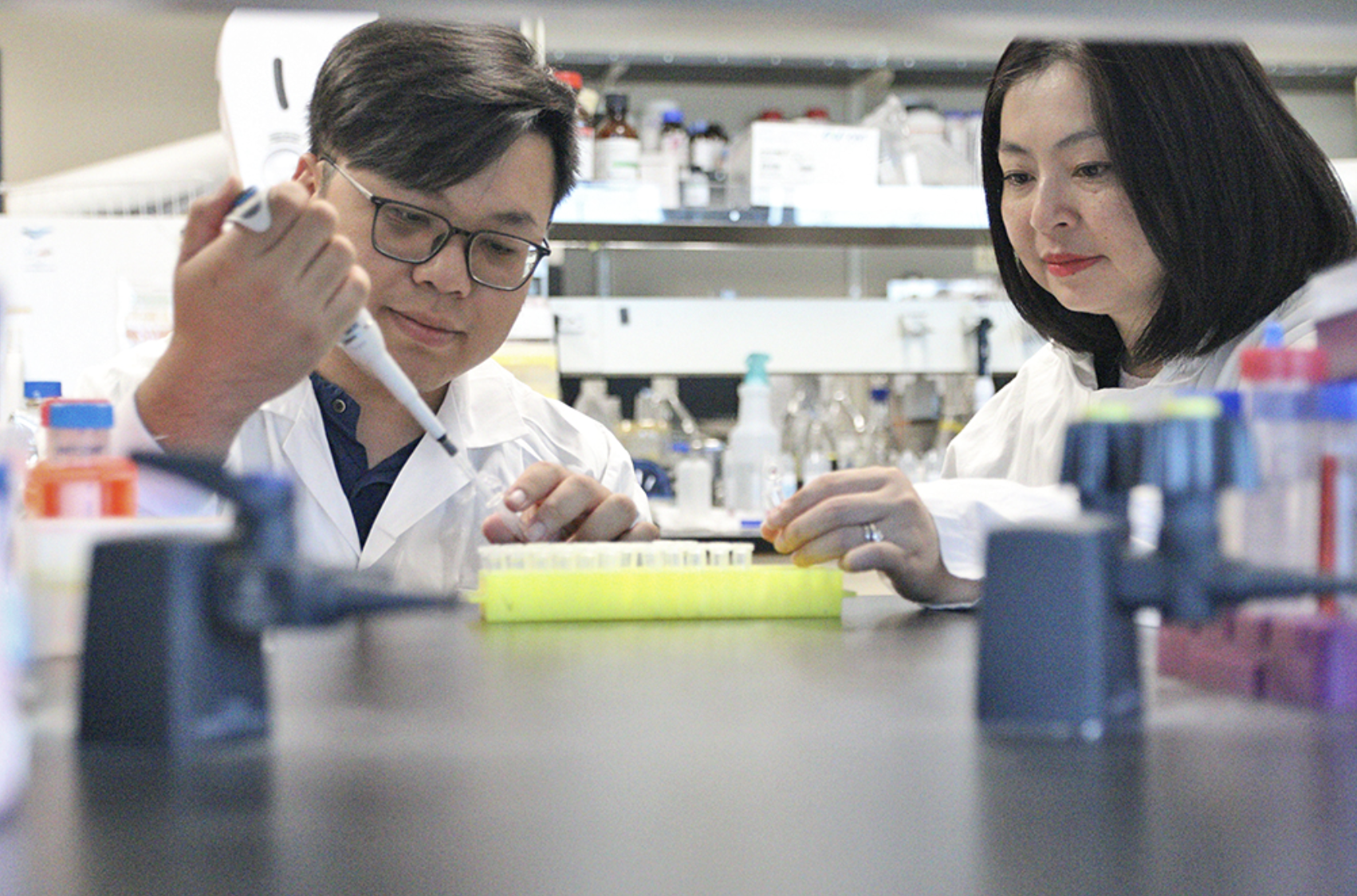Elevate your local knowledge
Sign up for the iNFOnews newsletter today!
Sign up for the iNFOnews newsletter today!
Selecting your primary region ensures you get the stories that matter to you first.

In a lab at the University of British Columbia Okanagan, researchers have figured out how plants make a unique compound that could help fight cancer.
UBCO’s principal research chair for biotechnology Dr. Thu-Thuy Dang and his research group figured out how plants make mitraphylline, a rare compound that could fight tumours and inflammation, according to a press release from the university issued today, Oct. 14.
“This is similar to finding the missing links in an assembly line,” Dang said in the release. “It answers a long-standing question about how nature builds these complex molecules and gives us a new way to replicate that process.”
Mitraphylline is part of a group of molecules called spirooxindole alkaloids. These molecules have a rare twisted ring structure and have strong effects against tumours and inflammation.
Before Dang’s research it was a mystery how plants made these twisted structures. Back in 2023, the research group found the first plant enzyme that can twist a molecule into the spiral shape that helps battle cancer.
Doctoral student Tuan-Anh Nguyen followed up on the breakthrough. Nguyen led an effort to find a pair of enzymes, one that sets up the molecule’s structure and another that twists it into the desirable mitraphylline.
Typically, mitraphylline is found in small amounts in tropical trees like kratom and Uncaria, members of the coffee family.
By finding enzymes that make mitraphylline, scientists are one step closer to producing it in a lab so it can be turned into medicine for cancer treatment.
“With this discovery, we have a green chemistry approach to accessing compounds with enormous pharmaceutical value,” Nguyen said in the release. “This is a result of UBC Okanagan’s research environment, where students and faculty work closely to solve problems with global reach.”
The team in Kelowna had help from Dr. Satya Nadakuduti’s team at the University of Florida.
“We are proud of this discovery coming from UBC Okanagan. Plants are fantastic natural chemists,” Dang said. “Our next steps will focus on adapting their molecular tools to create a wider range of therapeutic compounds.”
News from © iNFOnews.ca, . All rights reserved.
This material may not be published, broadcast, rewritten or redistributed.

This site is protected by reCAPTCHA and the Google Privacy Policy and Terms of Service apply.
Want to share your thoughts, add context, or connect with others in your community?
You must be logged in to post a comment.